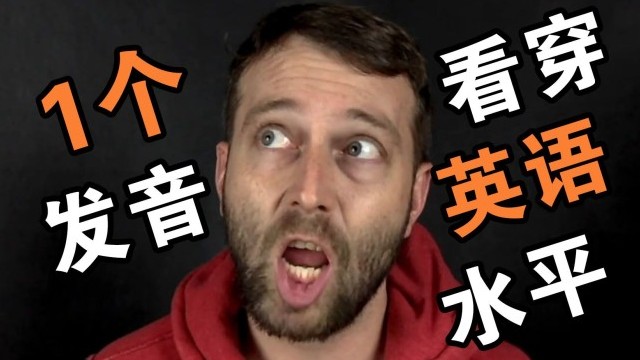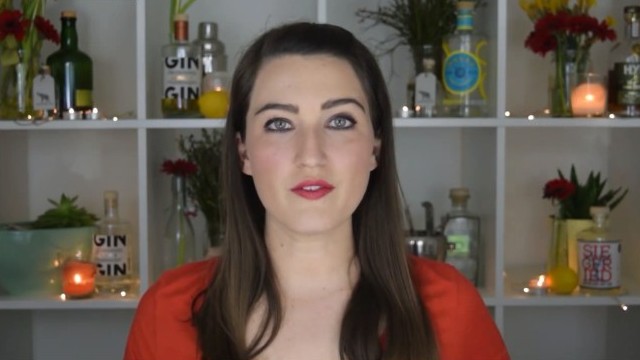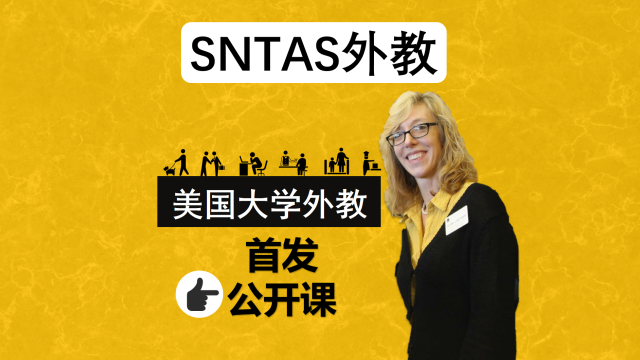回復(fù)“你好嗎”還在用I'm fine?
作者:Summer.
2020-09-02 11:45
In this article, we’ll look at a bunch of situations where people ask and respond to How are you? in different ways. First, let’s look at a classic example conversation using this phrase:
在這篇文章中,我們將看一系列的情況,人們會問你,你的反應(yīng)如何?以不同的方式。首先,讓我們看一個經(jīng)典的對話示例:
A: Hello, how are you?
A: 你好,你好嗎?
B: I’m well, thank you. And you?
B: 我很好,謝謝。你呢?
A: I’m well, thank you.
A: 我很好,謝謝。
Here, person A uses the question How are you? as a standard greeting. It’s customary to respond, but it’s not always necessary. In this case, person B decides to respond with I’m well. Notice that he uses the adverb well as a modifier for the verb to be (which becomes I’m). This is grammatically the most correct way to respond, but as we’ll see later, it’s not the only way. Person B then returns the question by asking, And you?, to which person A gives a similar response. Let’s look at the next scenario:
在這里,人A會問你怎么樣?作為標準的問候語。這是習(xí)慣性的回應(yīng),但并不總是必要的。在這種情況下,人B決定回答我很好。注意,他使用副詞作為動詞be的修飾語(變成了I'm)。這是語法上最正確的回應(yīng)方式,但正如我們稍后將看到的,這不是唯一的方式。然后,B個人通過提問返回問題,你呢?,對此,A個人給出了類似的回答。讓我們看看下一個場景:
A: Hey, how are you?
A: 嘿,你好嗎?
B: I’m good, thanks! You?
B: 我很好,謝謝!你呢?
A: I’m fine. Lately, just classes and work.
A: 我很好。最近,只是上課和工作。
Here, person B responds to the question How are you? not by saying I’m well but by saying I’m good. The word good is an adjective and traditionally not a proper modifier for the verb to be. But although this may be considered grammatically incorrect, it’s actually a much more common response than I’m well, which often sounds too stiff and formal. Another natural-sounding alternative is to say I’m fine, just as person A says in the third line. Notice that you can return the question of How are you? in several ways:
在這里,B個人回答你怎么樣了?我說我不好。good這個詞是個形容詞,傳統(tǒng)上不是動詞to be的適當修飾語。雖然這可能被認為是語法錯誤,但實際上這是一個比“我很好”更常見的回答,這聽起來太生硬和正式了。另一個聽起來很自然的選擇是說我很好,就像第三行的人A說的那樣。注意,您可以返回“你好嗎?”?在幾個方面:
How are you? /And you? /You? /How about you?
你好嗎?/你呢?/你呢?/你呢?
This next scenario is a bit more complicated:
下一個場景要復(fù)雜一些:
Friend A: Hey, I haven’t seen you in forever!
朋友甲:嘿,我好久沒見你了!
Friend B: I know! How have you been doing?
朋友B:我知道!你最近怎么樣?
Friend A: I’ve been doing well, thanks. How about you?
朋友A:我一直很好,謝謝。你呢?
Friend B: Hanging in there. Want to grab lunch sometime?
朋友B:在那兒等著。想找個時間吃午飯嗎?
Friend A: Yeah, I’m down!
朋友A:是啊,我倒下了!
First off, instead of simply asking How are you?, friend B asks a slightly different question: How have you been doing? The difference is that while How are you? simply asks about a current state, How have you been doing? asks how a person has been doing lately. In other words, it’s a way to catch up with the other person. In this conversation, it’s an appropriate question since the two friends haven’t seen each other in a long time. You can also say How have you been?, which means the same thing. Similarly, How are you? and How are you doing? basically mean the same thing and are both commonly used. In response, friend A conforms with the present perfect progressive tense by saying, I’ve been doing well. Here, it actually sounds natural to use the adverb well because it’s modifying the verb to do, not the verb to be. Friend B, on the other hand, responds to friend A’s question by saying Hanging in there. This is a casual idiom that basically means that life has been difficult (hectic, stressful, etc.), but the person is managing to keep up. Since How are you? is used as a greeting, it’s common for the other person to respond in order to reciprocate the greeting, such as in this conversation at a supermarket:
首先,不要簡單地問你怎么樣?,朋友B問了一個稍微不同的問題:你最近怎么樣?不同的是你怎么樣了?簡單地問一個現(xiàn)狀,你最近怎么樣?問一個人最近過得怎么樣。換句話說,這是一種追趕他人的方式。在這次談話中,這是一個恰當?shù)膯栴},因為這兩個朋友很久沒見面了。你也可以說你過得怎么樣?,意思是一樣的。同樣,你好嗎?你好嗎?基本上意思相同,都是常用的。作為回應(yīng),朋友A用現(xiàn)在完成時進行時說:“我做得很好”。在這里,很好地使用副詞聽起來很自然,因為它修飾的是動詞to do,而不是動詞to be。另一方面,朋友B回答朋友A的問題時說“堅持住”。這是一個不經(jīng)意的習(xí)語,基本意思是生活很艱難(忙亂,壓力等),但這個人正在努力跟上。你怎么樣了?作為問候語,對方通常會回應(yīng)對方的問候語,例如在超市的這段對話中:
Cashier: Hi, how are you?
收銀員:嗨,你好嗎?
Customer: I’m good, thank you. How are you?
顧客:很好,謝謝。你好嗎?
Cashier: I’m doing well, thanks. Did you find everything alright today?
收銀員:我很好,謝謝。你今天一切都好嗎?
Cashier: Yes, thank you.
收銀員:好的,謝謝。
However, as I mentioned before, it’s also acceptable to not respond to the question, since it is such a common phrase that can mean not much more than a simple greeting. This is especially true with customers, who may not always respond to the greeting that a cashier uses with every single customer:
然而,正如我之前所提到的,不回答這個問題也是可以接受的,因為這是一個非常常見的短語,它的意思不超過一個簡單的問候。對于客戶來說尤其如此,他們可能不會總是對收銀員對每個客戶的問候作出回應(yīng):
Cashier: Hi, how are you?(A minute later)
收銀員:嗨,你好嗎?(一分鐘后)
Cashier: Your total is $22.54.
收銀員:總共22.54美元。
Customer: (Gives the cashier his card) Here you go.
顧客:(把他的卡給收銀員)給你。
In this conversation, the cashier’s question goes unresponded, and the interaction simply continues as normal. Let’s move onto the next conversation:
在這個對話中,收銀員的問題沒有回應(yīng),互動只是照常繼續(xù)。讓我們進入下一個對話:
Friend A: Hey man, what’s up?
朋友A:嘿,伙計,怎么了?
Friend B: Not much. How are you doing?
朋友B:不多。你好嗎?
Friend A: I’m doing good. Drinks tonight?
朋友A:我做得很好。今晚喝點什么?
Friend B: Maybe. I just have to get up early for work tomorrow.
朋友B:也許吧。我明天得早起去上班。
Friend A: Oh, right. How’s your new job going?
朋友A:哦,對。你的新工作怎么樣?
Friend B: It’s alright. I just have to get used to this new schedule.
朋友B:沒關(guān)系。我只是要習(xí)慣這個新的時間表。
It’s important to talk about the phrase What’s up? and how it’s different from How are you?. First of all, it’s much more informal and often used by young people. Second of all, it means something different and must be responded to accordingly. While How are you? and similar phrases ask about a person’s state of being, What’s up? asks about what the person is doing or about what is happening in general. You can respond to the question by saying what you’re currently doing (e.g., I’m working, just studying, etc.), but the most common response to just say Not much. This phrase is so common, in fact, that it has its own texting abbreviation: nm. In response, friend B doesn’t simply ask How are you? but How are you doing?. Once again, these two mean the same thing, but friend A’s response conforms to the present progressive tense (I’m doing good). Although good is technically grammatically incorrect, since the adjective is not a proper modifier for to do, it still sounds natural. In the fifth line, friend A asks a much more specific question about friend B: How’s your new job going? We have now moved past the realm of simple greetings, and the two people are now having a more involved conversation with each other. You may have noticed up until now that most of these responses to How are you? tend to be positive (I’m fine, I’m good, I’m well, etc.) However, though this is most customary, you certainly don’t have to respond this way. Some people are more honest than others and might immediately say how they are truly feeling, rather than conforming to the standard formula of greetings. For example:
重要的是什么?和你有什么不同?。首先,它更為非正式,而且經(jīng)常被年輕人使用。第二,它意味著不同的東西,必須作出相應(yīng)的反應(yīng)。你呢?類似的短語問一個人的生存狀態(tài),怎么了?詢問對方正在做什么或發(fā)生了什么。你可以通過說出你目前在做什么來回答這個問題(例如,我在工作,只是在學(xué)習(xí)等),但是最常見的回答是不要說太多。事實上,這個短語非常常見,以至于它有自己的短信縮寫:nm。作為回應(yīng),朋友B不會簡單地問你怎么樣?你還好嗎?。再一次,這兩個意思是一樣的,但是朋友A的反應(yīng)符合現(xiàn)在進行時(我做得很好)。雖然good在語法上是不正確的,但由于形容詞不是todo的適當修飾語,它聽起來還是很自然的。在第五行,朋友A問了一個關(guān)于朋友B的更具體的問題:你的新工作進展如何?我們現(xiàn)在已經(jīng)超越了簡單問候的范疇,兩人現(xiàn)在正在進行更深入的對話。到目前為止,你可能已經(jīng)注意到這些對你怎么樣的回答中的大多數(shù)?傾向于積極(我很好,我很好,我很好,等等),然而,盡管這是最常見的,你當然不必這樣回答。有些人比其他人更誠實,可能會立即說出他們的真實感受,而不是遵從標準的問候語。例如:
A: How are you?
A: 你好嗎?
B: Um, not so good.
B: 嗯,不太好。
A: Why, what’s wrong?
A: 怎么了?
On the other hand, the formula of How are you? followed by a positive, although ingenuine, response is so common that in order to understand one’s true current state, you’ll have to dig a bit deeper. Take a look a this example:
另一方面,你怎么樣?接下來是一個積極的,雖然很巧妙的反應(yīng),是如此的普遍,為了了解一個人的真實現(xiàn)狀,你必須深入一點??纯催@個例子:
A: How are you?
A: 你好嗎?
B: Fine, you?
B: 好吧,你?
A: I’m fine… You look a little upset. Is everything okay?
A: 我很好…你看起來有點不安。一切都好嗎?
B: Well, not really…
B: 嗯,不是真的…
At first, person B responds to person A’s question in a conventional way by saying Fine (these one-word answers are just as appropriate as saying I’m fine, etc.). However, person A can clearly tell that something is wrong and asks person B a much more genuine question: Is everything okay? This question, functioning much differently from the common greeting of How are you?, elicits a much more honest response from person B, who confesses, “Well, not really…” Hopefully, this can show you how two questions, although they mean similar things semantically, function very differently and thus should be used differently depending on what you want from a conversation.
一開始,B用一種傳統(tǒng)的方式回答A的問題,說“好”(這一個詞的回答和說“我很好”一樣恰當,等等)。然而,人A可以清楚地看出問題出在哪里,并問B一個更真實的問題:一切都好嗎?這個問題的功能與一般的問候語“你好嗎”有很大不同?,得到了B個人更誠實的回答,他承認,“嗯,不是真的……”希望這能告訴你兩個問題,雖然它們在語義上是相似的,但功能非常不同,因此應(yīng)該根據(jù)你想從對話中得到什么來使用不同的問題。
- 相關(guān)熱點:
- 英語口語練習(xí)
- 英語口語
- 全國英語等級考試報名











